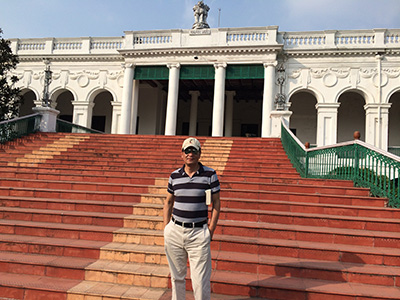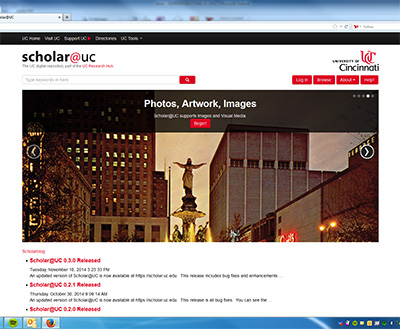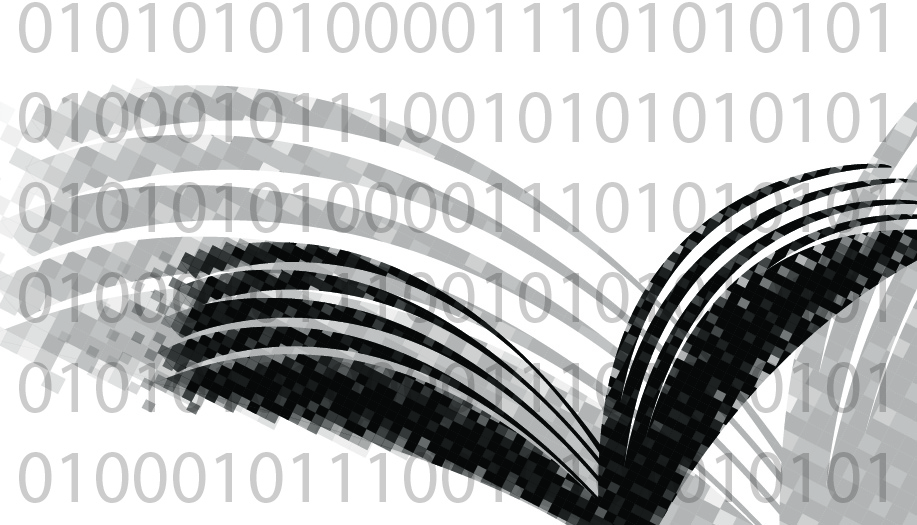
A Note from the Dean: Recent Activity of the Mellon Grant Project

In late 2012, the University of Cincinnati Libraries were awarded a $58,000 Scholarly Communications and Information Technology Program planning grant from The Andrew W. Mellon Foundation to define and describe the key skills and competencies required to support a robust digital scholarship program. The grant project, entitled “Knowledge & Skill Capacity for Digital Scholarship: A Global Benchmarking Study,” is a joint collaboration with co-principle investigators University Librarian Vivian Lewis of McMaster University (Hamilton, Ontario, Canada), Dean of Libraries Jon E. Cawthorne of West Virginia University, Lisa Spiro, the Executive Director of Digital Scholarship Services at Rice University, and myself. This is UC Libraries first Mellon Grant and more can be found about it online via the announcement.
Over the past two years, the grant’s investigators have traveled to academic institutions and Digital Scholarship centers across the globe in search of the “best in class” in Digital Scholarship programs. Working with the ADHO (Alliance of Digital Humanities Organizations) and the Digital Scholarship community, we were able to generate a list of national and international locations to survey.
Digital Scholarship is broadly defined as the creation, production, analysis and or dissemination of scholarship using new technologies with emphasis on non-traditional, digital and computational techniques. Through site visits and interviews, the group hoped to determine the key workforce-related factors associated with these centers’ success, other components necessary to support a robust digital scholarship program, and whether those features remain consistent across disciplines, geographic areas and cultures.
Earlier this month, Vivian Lewis and I traveled to India, the last of our international destinations, to visit the School of Cultural Texts and Records at Jadavpur University in Kolkata, West Bengal, and the Centre for Internet & Society in Bangalore.
The School of Cultural Text and Records is one of the most prominent centers of Digital Humanities in India. The school is known for its interdisciplinary approach and seeks to “document, process and study the textual basis, both verbal and audio-visual, of human society and cultural life in the widest sense.” Since its inception in August 2003, it has completed archival projects for the British Library, the Indira Gandhi National Centre for the Arts, New Delhi, and the Ministry of Culture, to name a few.

The Centre for Internet & Society is a non-profit research organization whose work focuses on multidisciplinary research and advocacy. They work on digital pluralism, public accountability and pedagogic practices, and plan to “explore, understand and affect the shape and form of the Internet and its relationship with the political, cultural and social milieu of our times.”
Both of these institutions have generous policies on collaboration and shared learning and were eager to play host to their contemporaries and help to supplement our research.
Over the next several months, we will consolidate our findings and prepare final reports for the Andrew W. Mellon Foundation. These results will then be made available to the larger academic community through publication and presentations at multiple conferences, including at the CNI (Coalition of Networked Information) and DH2015 in Sydney, Australia. The relationships we built in our global visits will work to reinforce the ever growing global community surrounding Digital Scholarship and Digital Humanities, and open new doors of communication across cultural lines.
Xuemao Wang,
Dean and University Librarian



